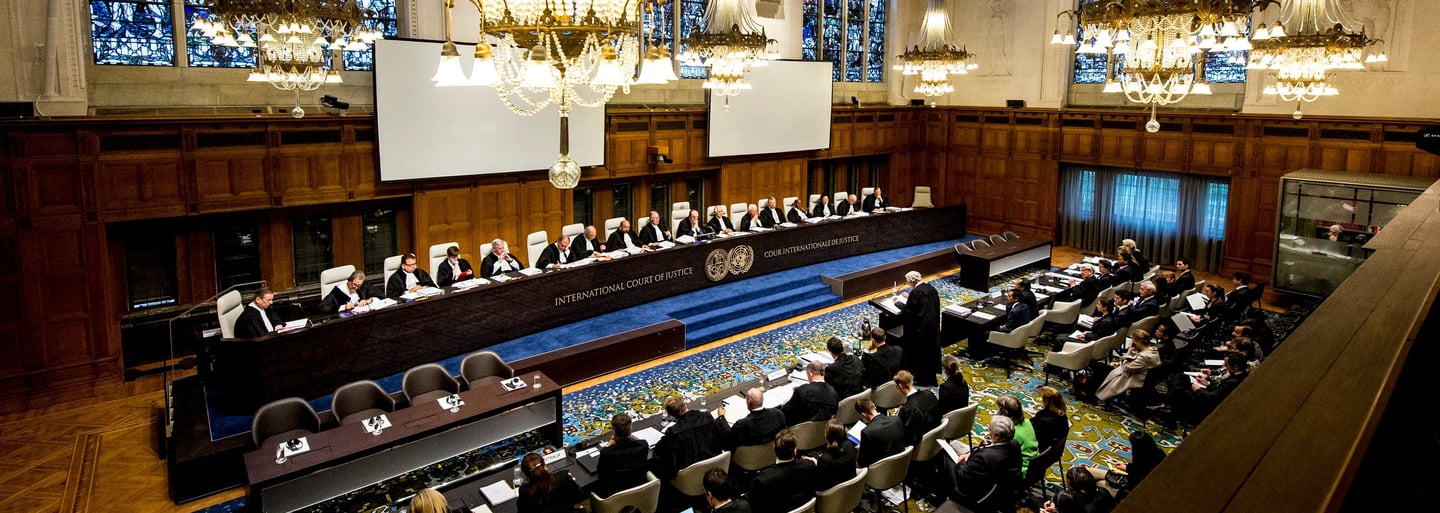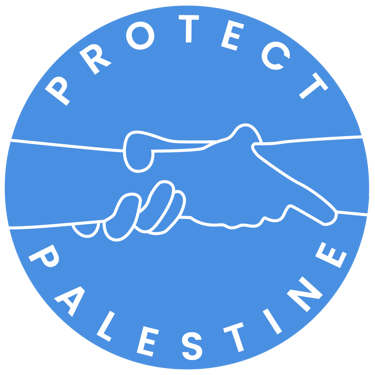International Law


The establishment of an international military force to protect Palestinian civilians, facilitate humanitarian aid and ensure self determination is both justified and required under international law.
Duty to Prevent Genocide
The evidence that Israel is committing genocide in Gaza is clear. In February 2024, the International Court of Justice determined that there is a risk that Israel is committing genocide in Gaza, and ordered legally binding measures to prevent irreparable harm. However, Israel has breached these orders, including by launching an offensive in to Rafah and restricting humanitarian aid in to Gaza.
Apart from the legally binding ruling of the International Court of Justice, evidence that Israel is committing genocide in Gaza has been provided by a wide range of UN officials, human rights organisations and journalists. This has included large-scale civilian deaths, with 70% of those killed being women and children, targeting of densely populated civilian areas, hospitals, schools, universities and refugee camps, destruction of infrastructure including water, electricity, transport and food supplies, mass forced displacement of over 2 million Palestinians, widespread use of torture, rape and sexual violence in Israeli detention centres, as well as explicit statements of genocidal intent from Israeli government representatives.
International law imposes obligations on all other states when there is a risk of genocide. This includes, condemning incitement to genocide, using diplomatic, economic, legal and military means to prevent and restrain the state at risk of committing genocide. It also includes an obligation to refrain from aiding or supporting parties committing genocide, including by means of arms sales, funding, or political cover.
These responsibilities are codified in the Articles on State Responsibility adopted by the International Law Commission (ILC), which emphasize that complicity or failure to act to prevent genocide breaches international obligations, and that states can be held accountable for their breach of obligations.
Responsibility to Protect (R2P)
The Responsibility to Protect (R2P) is an international law principle that holds states and the international community accountable for preventing and responding to mass atrocity crimes, including genocide, war crimes, ethnic cleansing, and crimes against humanity. It was endorsed by UN member states at the 2005 World Summit and is rooted in international law principles, including sovereignty and human rights.
Its core pillars include a duty to take timely and decisive action to prevent atrocities and genocide, including the duty to take coercive measures like sanctions or military intervention as a last resort. Under these obligations, states must not aid or abet perpetrators of atrocity crimes, including through arms sales or political backing and must investigate and prosecute individuals responsible for violations, through mechanisms like the International Criminal Court (ICC).
Armed Protection
The provision of military protection for civilians in armed conflict is a well established component of options available to states within international law. This establishment of such a military force can be done via the United Nations Security Coucnil or by states conducting a humanitarian intervention.
Within the United Nations framework, Art.42 of the UN Charter gives power the UN Security Council to authorize the use of military force, which can take action by air, sea, or land forces as necessary to maintain or restore international peace and security. There are a wide range of precedents in which a military force has been established including missions in Kosovo (UNMIK), East Timor (UNTAET), and Rwanda (UNAMIR). However, abesent authosation of the UN Security Council, several states including the USA, UK and France have relied on humanitarian justifications for the use of military force.
Conclusion
Israel's genocide of the Palestinian people is ongoing, with mass atrocities including bombing of schools, hospital and refugee camps frequently reported. After over a years of massacres in defiance of legally binding orders made by the International Court of Justice, International Criminal Court, United Nations General Assembly, UN Secretary General, UN Human Rights Committee as well as states and civil society organisations over the world, the provision of a military force to protect civilians is now a humanitarian and legal necessity.
